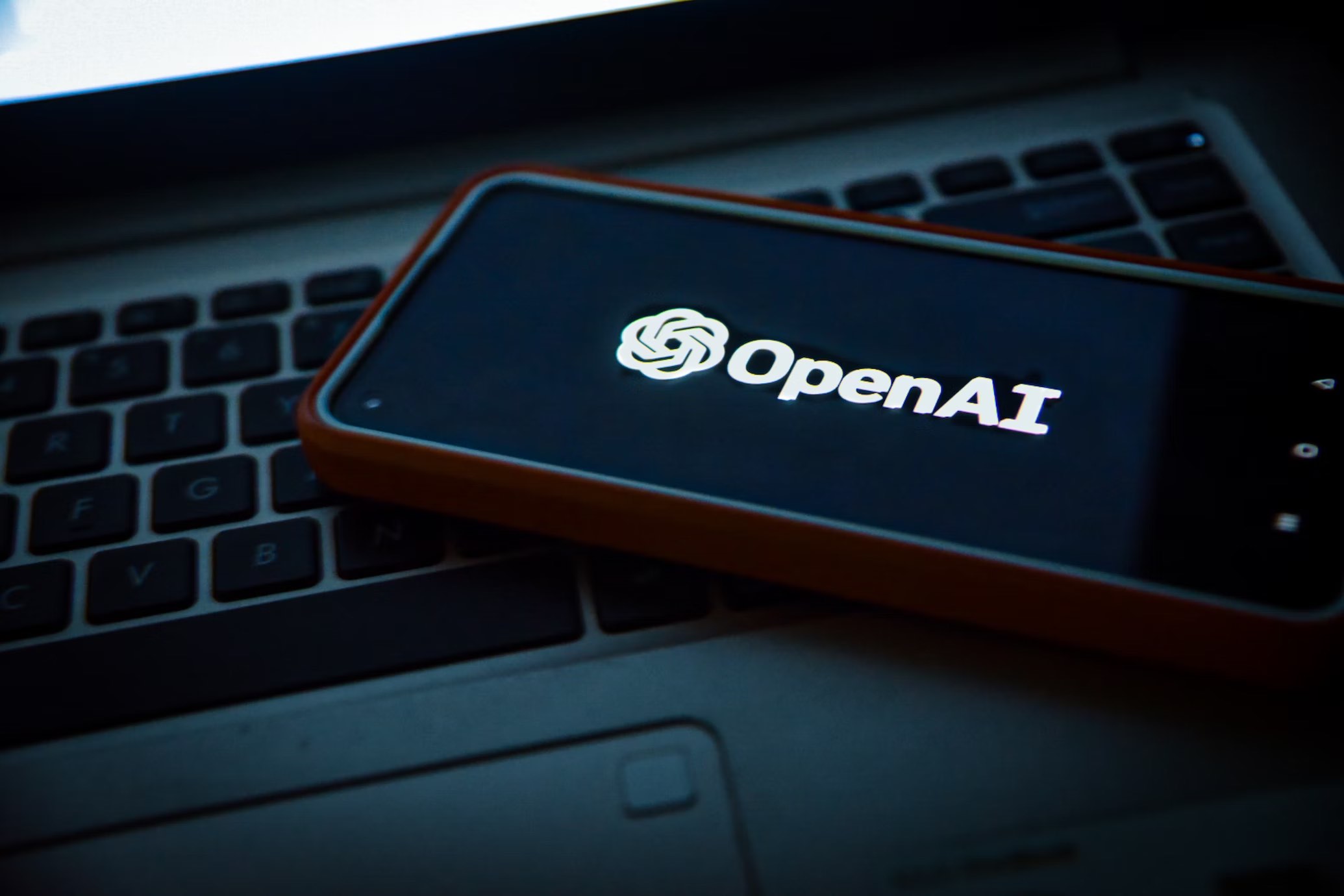The latest leap in AI has writers fearing for their careers. But there's no need to panic. ChatGPT is an opportunity, not a threat.
ChatGPT, the chatbot created by the artificial intelligence lab OpenAI, is apparently going to put an end to many things.
High school English? Over. The college essay? Dead.
ChatGPT is already swallowing up jobs currently done by humans, including those of copywriters and Buzzfeed quiz-writers, and the market is enthused that companies will be swapping an AI for employees. For those of us (like me) who make a living writing and working with writers, the message seems to be that it’s time to panic, that ChatGPT is coming to take our lunch…and dinner…and tomorrow’s breakfast.
But there is no need to panic. ChatGPT is an opportunity, not a threat.
The bot reveals the difference between human- and AI-writing. ChatGPT is a syntax-assembly machine. It goes word by word, predicting what’s most likely to come next. It does not think, create, or synthesize. It regurgitates. When humans write, we are engaging in a fully embodied process that taps into our full selves — both our rational and emotional parts — allowing us to put new, interesting, and actionable ideas into the world. We create.
Taking advantage of this opportunity means focusing on what we humans can do that the bot can’t.
Creating Calorie-Dense Content
In our digital world, to some degree, everything is a form of “content.” Everything we read, watch, and listen to — everything we consume — is content.
But, of course, not all content is created equal. Some of what we consume is thoughtful, carefully produced, and serves some collective need. This content nourishes us in an important way. This content is calorie-dense.
But there’s also the bad stuff — junk food — which exists to generate clicks and drive advertising revenue. This content is created with little care for accuracy or quality. This kind of content is ChatGPT’s specialty.
Once search engines became capable of indexing the Web, companies quickly realized that flooding the zone with “content” and optimizing for search engine placement was a good way to draw attention, clicks, and revenue. The priority became churning out as much content as possible, as quickly as possible.
This model was exhausted even before ChatGPT came along. Now there’s even more junk food on the way. Many of us have noted the degraded quality of Google search, and much of this is rooted in the already ubiquitous AI-produced clutter. You’ve seen this content if you’re looking for a recipe or trying to figure out a celebrity’s net worth.
ChatGPT may make better junk food than its AI ancestors, but it still falls short of the quality humans are capable of; it doesn’t provide the nutrients we need.
It’s important to unpack some of the initial enthusiasm around ChatGPT. For example, Buzzfeed’s pivot away from human labor towards AI-produced content got a thumbs-up from Wall Street because it will reduce the cost of generating our digital junk food.
Wall Street is betting on a world with a bottomless appetite for junk food, even though we’ve already seen signs that we’re collectively overstuffed.More of this stuff is not what people need. What people need will be the province of human writers, writers that provide nourishing words.
To stay ahead of ChatGPT, or any other text-generating AI, it’s important to focus on forging a deep and meaningful connection to your audience — a human connection. Such a reader-writer relationship is rooted in the following values: providing insights, building community, and becoming a conduit for the ideas of others.
Providing Insights to Readers
One of my mantras about teaching writing is that writing is thinking. It is both the expression and the exploration of ideas. While a writer is writing, they are making fresh connections and new discoveries for themselves about their subject. These discoveries can then be shared with the audience.
ChatGPT cannot and will never be able to think. It is a bullshitter, in the sense of the word outlined in Harry G. Frankfurt’s famous essay, “On Bullshit:” “Speech that is intended to persuade without regard for truth.”
ChatGPT is a recombination and regurgitation machine. At its best, it will say things that have been said many times before. At its worst, it will say wrong or even dangerous things that have been said many times before. While there may be money to be made by using AI to churn out bullshit on a mass scale, that is not work for writers who actually care about writing.
As readers, we should be worried about what this flood of junk-food content will do to society. But, as writers, there’s no need to worry, as long as we continue to do our best to say what is true.
You won’t set yourself apart from AI by sharing information but by sharing your insights. A writer putting their discoveries on the page is an act of communion with the reader which encourages both parties to think more deeply about the subject. Together, the writer and reader are smarter than they would be alone.
As a reader, how often do you feel like a writer has come and plucked a thought out of your head? Those kinds of connections are deeply human, deeply meaningful, and cannot be achieved by an AI like ChatGPT.
Writing can be simultaneously a form of self-actualization and communication. Rather than churning out content to satisfy a search algorithm, we can use writing to figure out what we think and to share those thoughts with others. If you are the sort of person who wants to use your writing to provide insights about the world and connect with your audience in a way that makes us collectively wiser, there will always be space for you.
Building Community
Our writing is an expression of our humanity, the things that both make us unique individuals and bind us together as something larger than ourselves. These same things are the foundations of building community.
In a world flooded with junk-food content, writers who nourish their readers’ minds will stand out.
ChatGPT has revealed the limits of writing that adheres to prescriptive formulas — like the five-paragraph essay — and provides an opportunity to question how we write and why we write.
This conversation around AI has already created new communities focused on answering these questions. This is how I connected with Write of Passage, as we share many of the same values around the importance of writing as a source of individual empowerment and community-building. Write of Passage calls this “finding your people.” That’s exactly what community-building is, and it feels good!
As you build a community through your writing, stay away from making some grand plan or agenda. Just put your ideas into the world and seek out the ideas that resonate with you. Finding groups of people who share your values not only provides opportunities for work, but also a way to make your work more sustainable and, dare I say, fun.
Curate, Collaborate, Amplify
In a world overstuffed with content, where the good stuff is hard to find and search is a crapshoot, there’s great demand for writers who can lead their readers to valuable insights.
Carve out your own chunk of the Internet. Many writers, including me, have done this through newsletter platforms like Substack, which is a good way to cultivate an audience, stay connected with them, and build a foundation of trust.
These platforms also make good spaces for collaboration and its close cousin, amplification. You can use your platform to bring attention to other writers you enjoy, and whose values you share. Many of my own newsletters reference the work of other writers’ newsletters, which creates a great network effect. You expose your audience to writers you think they will enjoy, and then others do the same with your work in return. It’s a win-win.
As you build an audience, you become not just a writer but also a curator. Your readers will trust you to recommend good writing and interesting ideas.
Over time, as you grow your audience by writing, curating and collaborating, your chunk of the Internet will become a hub of activity for those who share your values.
Writing is the best way I know of to access my own mind. Exploring my thoughts and learning about myself would be enough. Having the chance to then share my thoughts with others is a bonus that prompts more writing and reflection, in a never-ending, virtuous cycle.
When we write, we connect with the very essence of humanity. There’s no reason to outsource that to a chatbot.
John Warner is a writer, editor, speaker, and consultant with more than twenty years of experience teaching college-level writing. He is the author of Why They Can’t Write and The Writer’s Practice.



